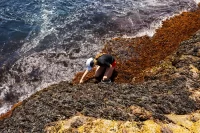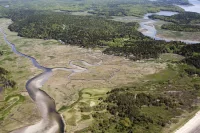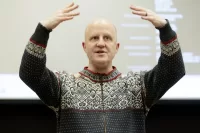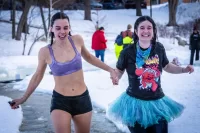
Perched on the edge of a boat gliding smoothly out of sunny Northeast Harbor, Maine, Tess Black ’20 commands the attention of the dozens of visitors to Acadia National Park seated around her.
“Today, we are heading out into the great harbor of Mount Desert Island,” Black says. “This is one of thousands of harbors you will find here off of the coast of Maine.”
This Bates News story is the first in an ongoing series on how Bates graduates are finding purpose in their lives and careers.
She is dressed in the muted green uniform emblematic of National Park System rangers, complete with a flat-brimmed hat that she holds securely to her head against the September sea breeze.
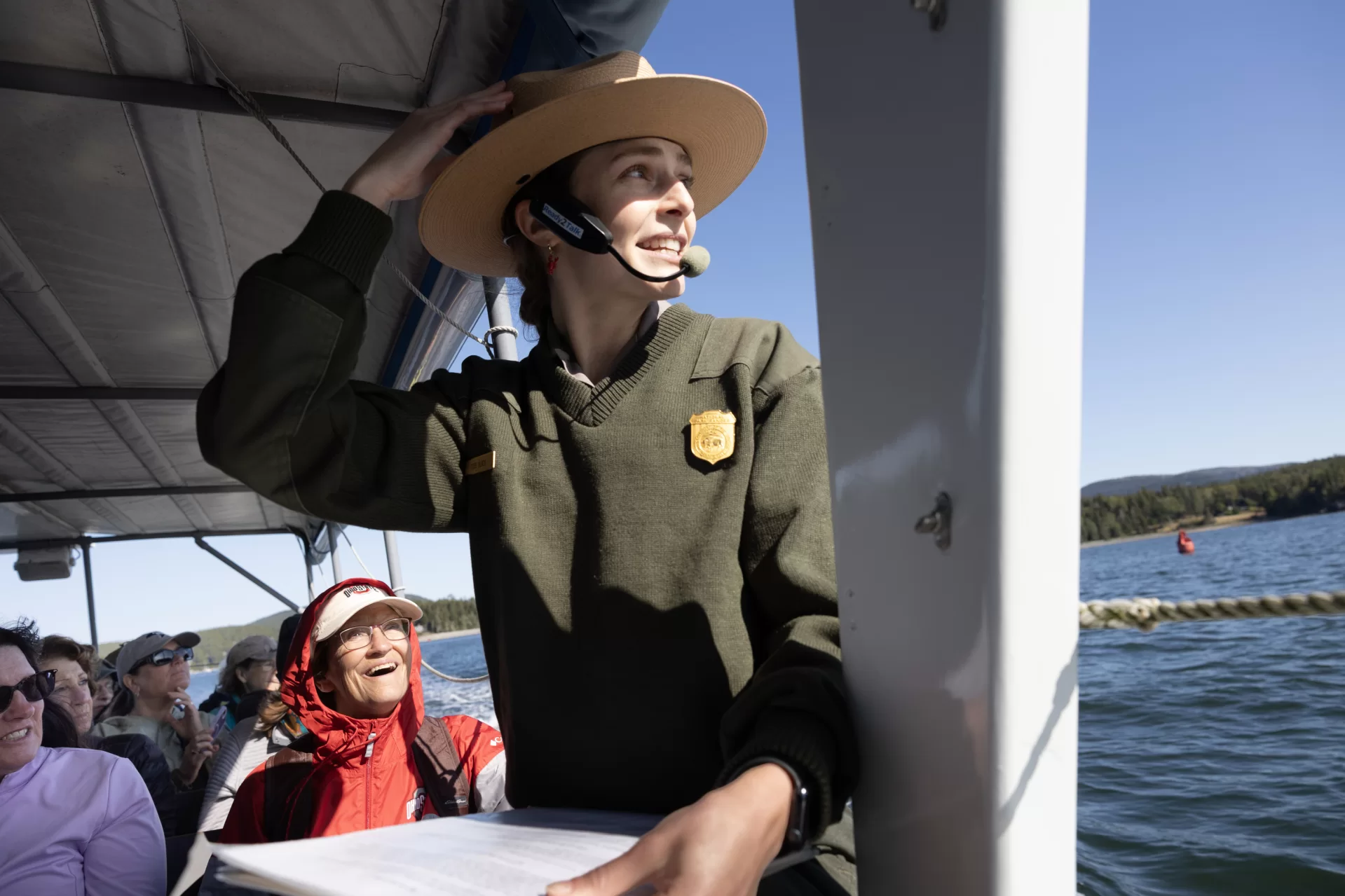
It’s Black’s ninth season working as a park ranger and her second in Acadia National Park, where she gives guided boat tours, leads hikes, and greets visitors.
Aboard the Sea Princess boat tour that she leads each Tuesday morning, she’s part naturalist, part tour guide, and part comedian, directing attendees where to look using clock positions.
“Who here has seen an analog clock before?” Black says, fielding laughter (and nods) from the day’s audience of mostly older adults, plus one baby. “Very good. The front of the boat is going to be our 12 o’clock.”
Her passengers likely can’t tell that public speaking is not something that comes naturally to Black, but rather a skill she’s honed while working at parks around the country.
After learning to love the outdoors at summer camp in Michigan, Black, who grew up in Los Angeles, was determined to find a job that allowed her to “spend as much time as possible outside.” She got her start interning in Zion National Park before her junior year at Bates, where she majored in environmental studies with a minor in education.
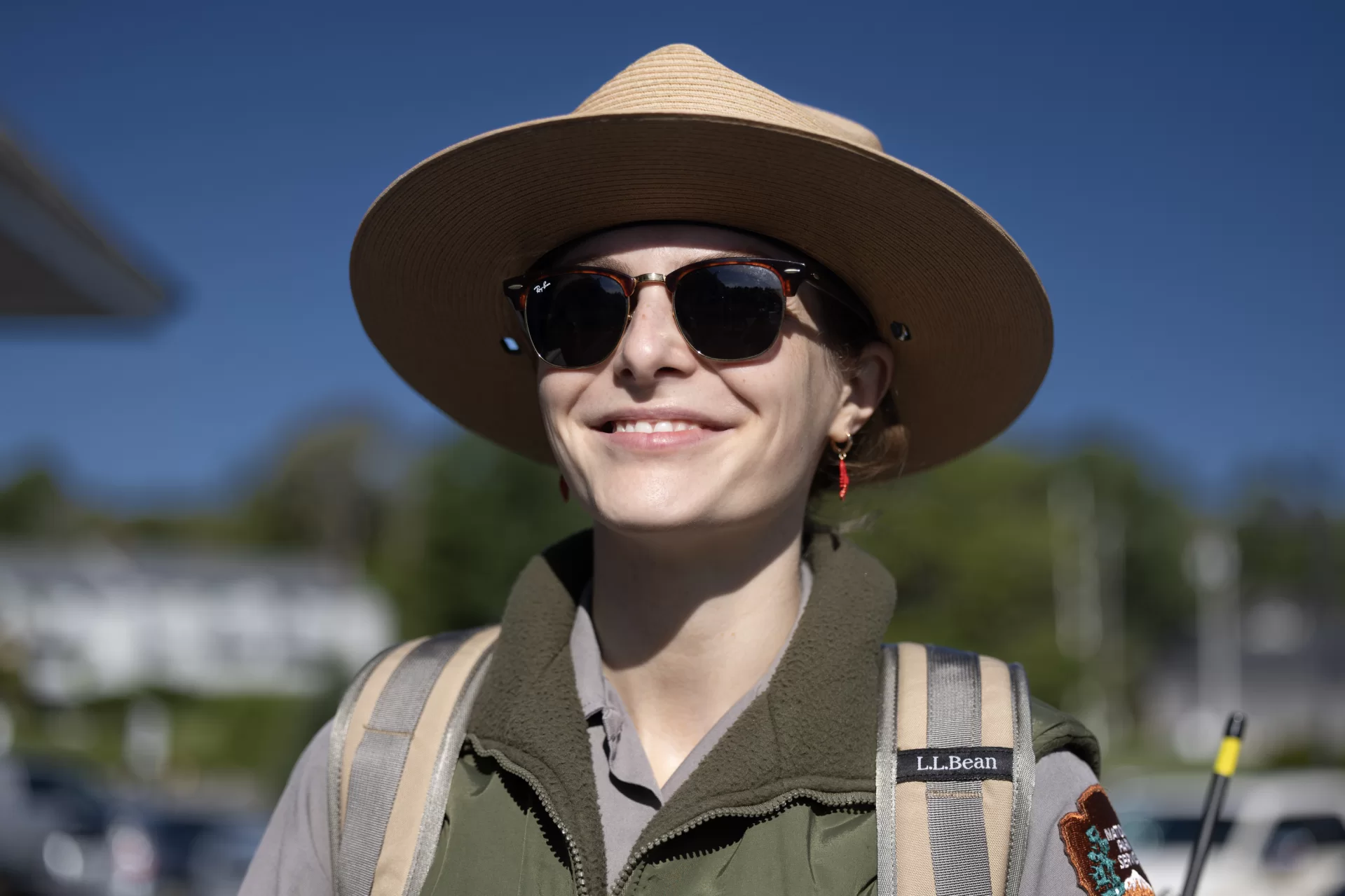
For her internship, which was funded by Bates’ Center for Purposeful Work, Black worked in Zion’s interpretation division, comprised of the rangers who greet visitors and offer educational programming.
“This is a great example of the Purposeful Work model in action,” says Allen Delong, the senior associate dean and director for graduate and professional school advising at the Center for Purposeful Work. “We work with students as they explore their strengths and interests on campus in leadership roles, and off-campus through experiential opportunities like this one, all of which informs their future choices.”
In Zion, Black’s role included giving public talks about geology and park history.
“I was really afraid of public speaking at that time,” Black says. “I was like, ‘I don’t know if I can do this.’ And then I realized I didn’t have a choice, so I just bit the bullet.”
With practice, Black overcame her fear and became dedicated to sharing the beauty of the National Park System with visitors. Since graduating from Bates in 2020, she has consistently worked seasonal jobs as a ranger, moving about every six months to work in Acadia, Yellowstone, Death Valley, Canyonlands, Denali, and Saguaro National Parks.
In Canyonlands and Denali, Black was a backcountry park ranger, spending days at a time backpacking alone through the wilderness to advise hikers, issue permits, and occasionally conduct search-and-rescue operations.
“That is truly the job,” Black says. “You get paid to go backpacking.”
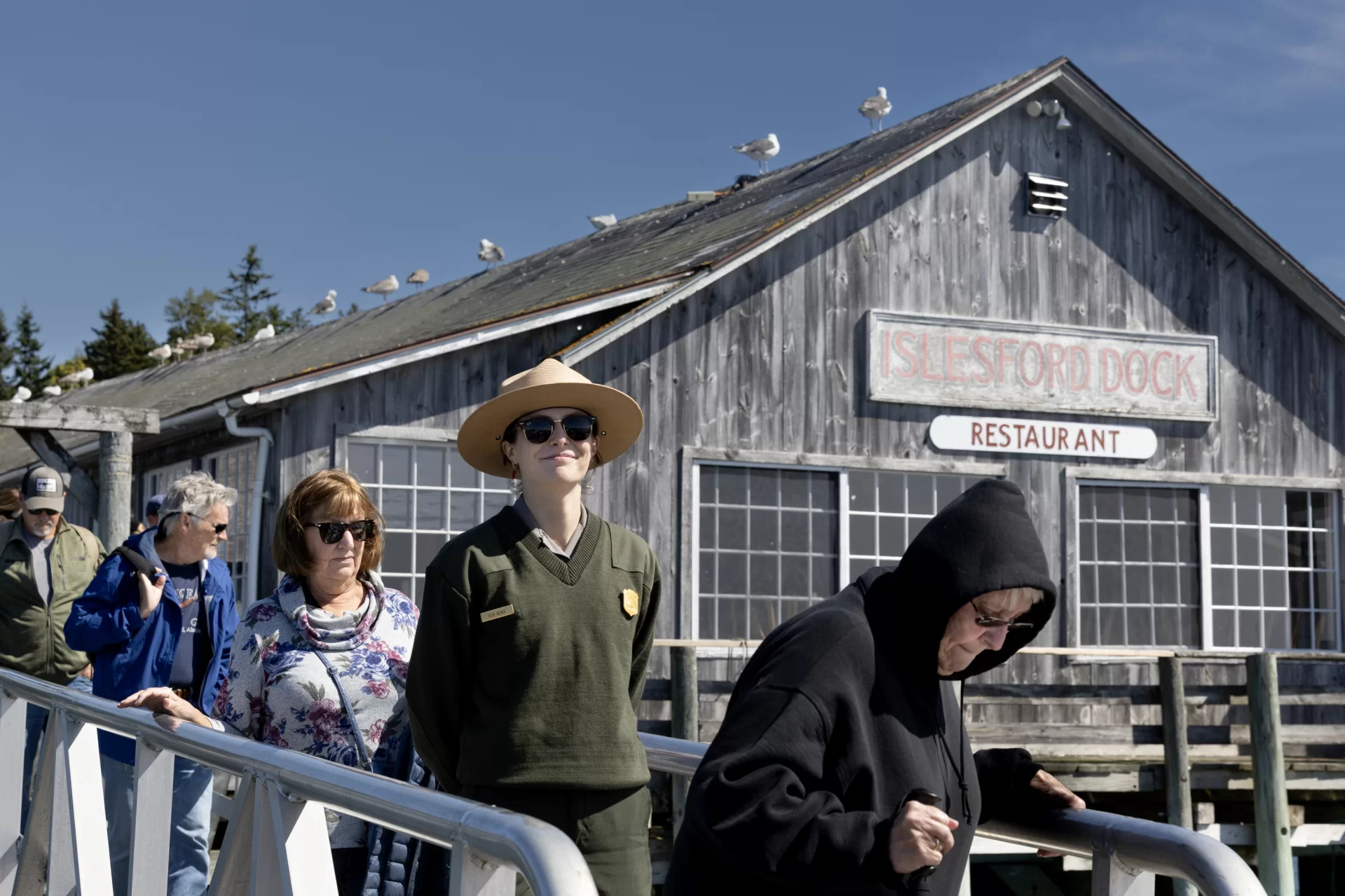
Despite its perks, a park ranger’s job is not without the occasional brush with the elements. Severe flooding closed Yellowstone and Death Valley while Black was working at each respective park. She was working in Denali’s Backcountry Information Center during the 2025 Riley Fire, which burned more than 400 acres of land.
“I was blankly staring out the window, and then my eyes adjusted,” Black says. “I realized, ‘That hillside’s on fire.’”
Thankfully, the fires and floods didn’t harm her, and neither did the curious bear who approached her tent as she was camping alone in Canyonlands. From inside her tent, Black heard what she thought was a person creeping suspiciously close and clutched her satellite phone, prepared to contact park headquarters.
“Every step it made, the ground beneath me would reverberate,” Black says. “I was like, ‘Oh, no, this is bigger than a person.’”
She made noise to ward off the bear, and it quickly left, leaving but a few pawprints outside her tent.
After spending four years out west, enmeshed in that landscape, where she might be lugging gallons of water into the desert or floating down the Colorado River, in May, Black returned to her favorite national park: Acadia.
“It felt like it was time to come back,” Black says.
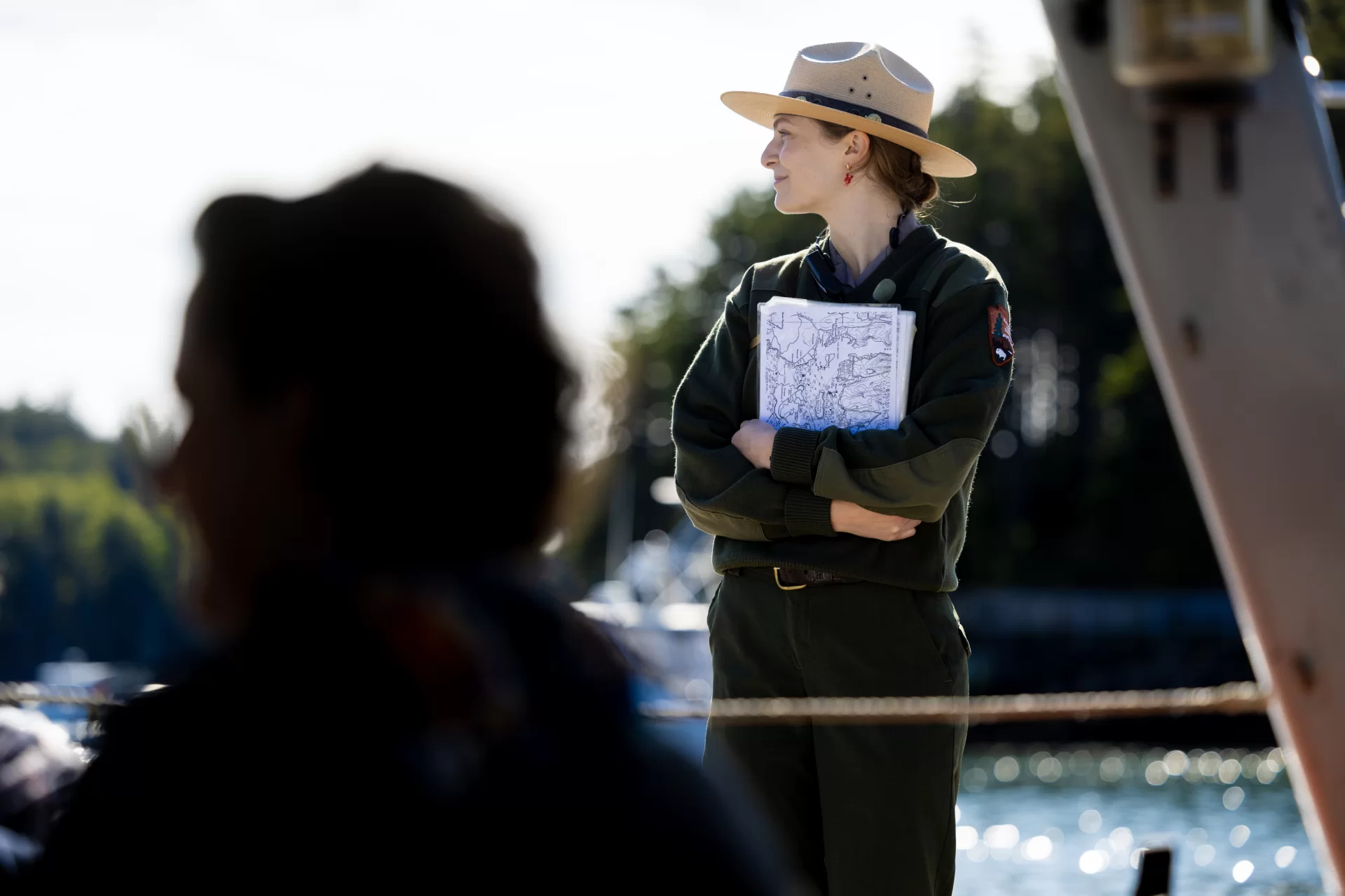
When she decided that she wanted to return, Black reached out to Kathy Grant, a supervisory park ranger in Acadia who had been Black’s supervisor during the summer 2021 season.
“She taught me kind of everything I know,” Black says. “She is the big reason that I am the employee for the parks and the person I am today.”
Grant quickly saw Black’s potential for leadership and success as a ranger, she says. She welcomed Black back to Acadia with open arms and even promoted her, allowing Black to take more responsibility in planning her park programming and expanding future job opportunities.
“I continued to follow her career as she took on a variety of roles in parks across the country,” Grant says. “Adapting to a new park every six months is not easy — it demands resilience, initiative, and a strong capacity to learn quickly. Tess consistently demonstrated those qualities.”
Black has spent the majority of this summer season confidently leading large crowds through outdoor programs, like the nearly three-hour boat tour out of Northeast Harbor. As the Sea Princess boat glides between islands, Black shares lessons she wrote herself on park history, lighthouses, geology, and marine life.
The tours are often sold out, and attendees on this late summer day engage closely, peppering Black with questions and comments.
She pauses to point out wildlife, like a perched osprey and a seal peering up through blue waters. Black calls her audience’s attention to a moose statue — telling them it is likely the only moose visitors will see in Acadia, which, to many tourists’ surprise, is not in the animals’ natural range.
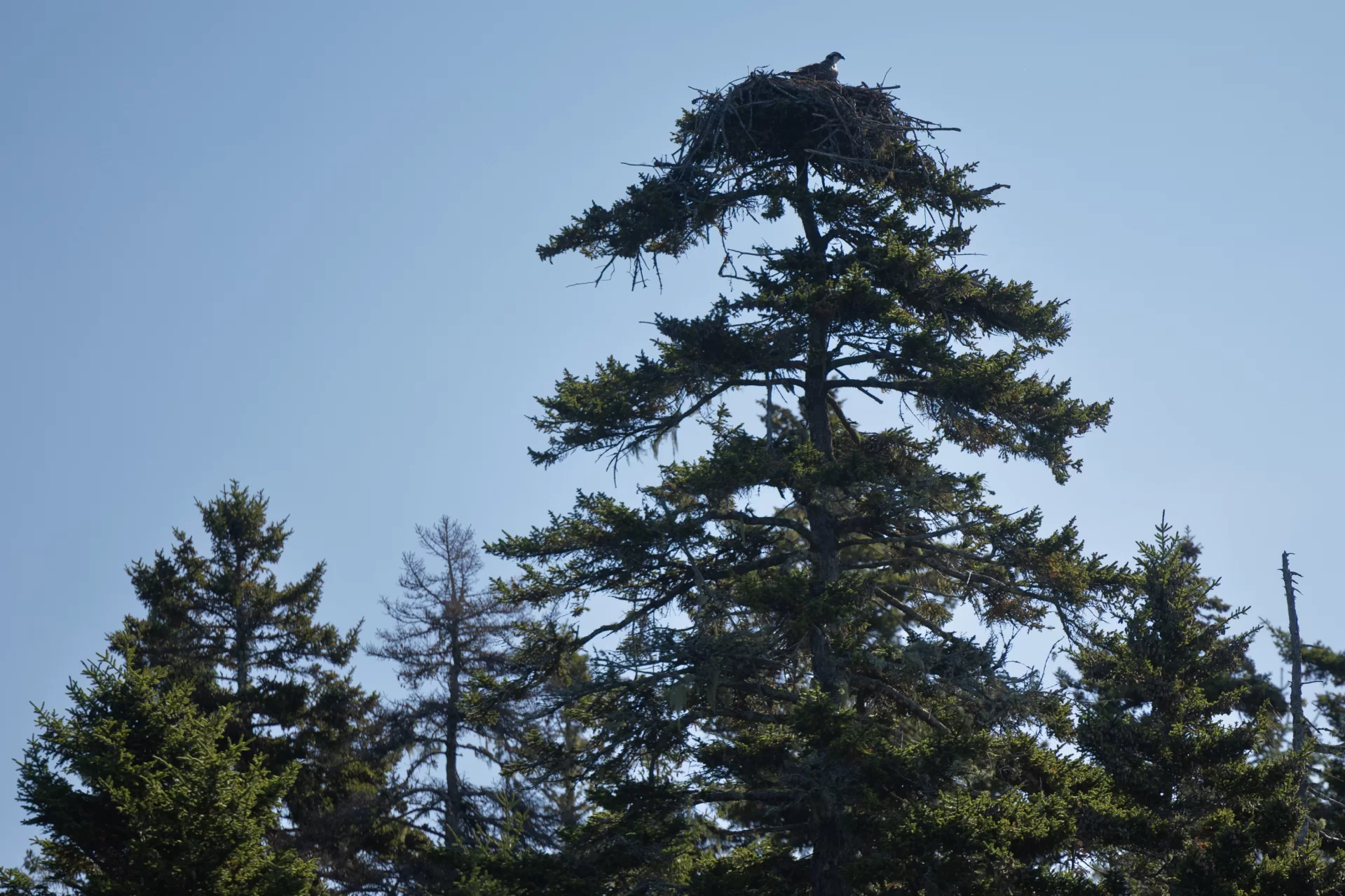
Black doesn’t take herself too seriously, especially when she’s working to get the attention of kids onboard. She makes references to beloved animated show SpongeBob SquarePants, which was inspired by writer Stephen Hillenburg’s time as a cook at a restaurant in Islesford, where the boat tour makes a stop.
In fact, a stuffed SpongeBob toy is “trapped” in a lobster trap hanging from the boat’s ceiling. Black uses the trap and a bright red lobster prop — matching her dangle lobster earrings — to demonstrate how lobsters are caught, as real lobster boats idle in the water nearby.
“Being a park ranger is silly in a good way,” Black says. “I’ve become a lot less serious over the years, while still maintaining professionalism.”
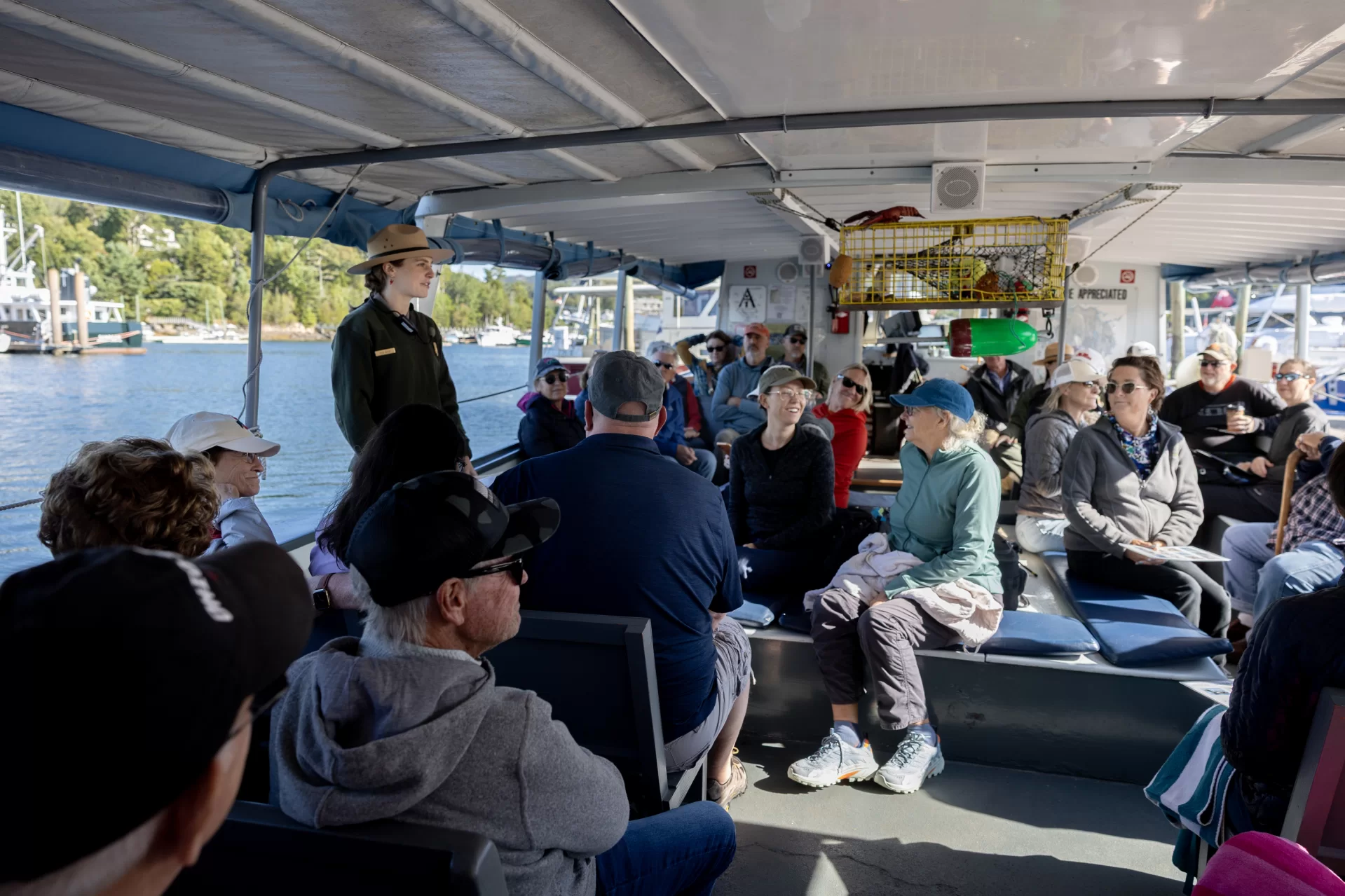
The boat navigates between colorful buoys and sailboats to stop at Little Cranberry Island. Visitors walk around and browse through the island’s history museum, giving Black a moment to rest her voice before resuming her program on the ride back.
Black, now with years of public speaking experience, is quick to improvise and read her audience, knowing when to add a joke and when to stick to the facts based on how attendees are responding. Sometimes, however, she sticks her neck out for a laugh with a corny joke, and no one responds. Learning to brush that off is just part of the job, she says.
“I’ve learned that I can do a lot of really uncomfortable things and be okay,” Black says. “It’s really okay to try new things and put yourself on the line. I don’t fear being embarrassed anymore. I have to make myself vulnerable for this job, and I’ve embraced that over the years.”
When she’s not leading a boat tour or hike, Black works at the visitor center information desk. Here, she gets to know some of the youngest visitors through the Junior Ranger program, which rewards kids who take a pledge to keep themselves and the parks safe with a badge denoting Junior Ranger status.
“Those interactions are some of my favorites because those are the future stewards of these parks,” Black says. “One day, they’re going to be adults, and they’re going to have, hopefully, the same excitement about helping to protect these places.”
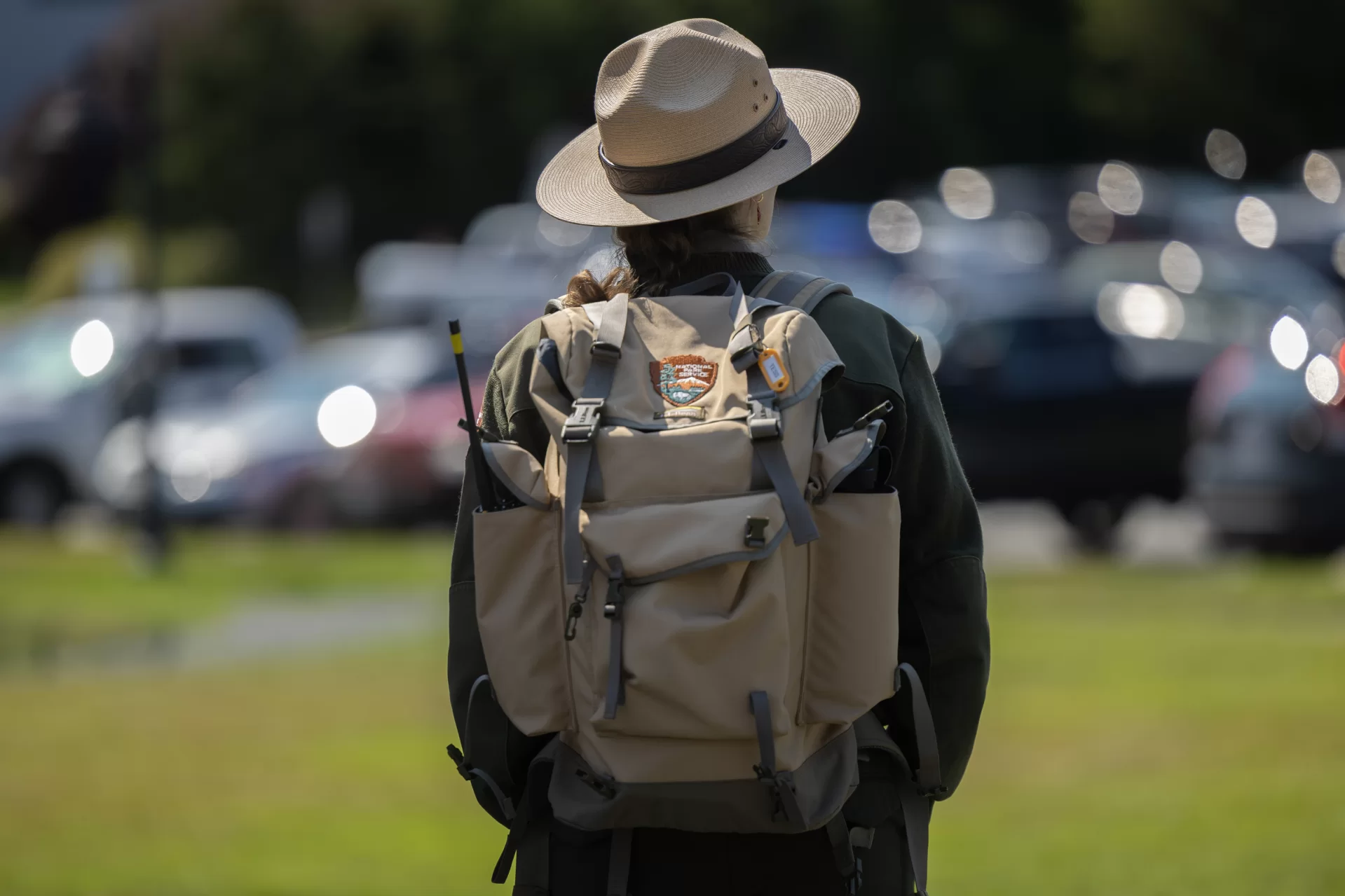
In October, Black will leave Acadia for her next adventure in the Virgin Islands National Park. She envisions herself continuing to work in the park system for the foreseeable future, educating visitors on the wonder of America’s natural beauty.
